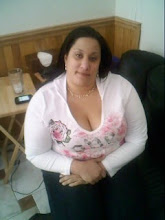Halfway Human by Carolyn Ives Gilman
~~~~Where you go, There you are!
This a companion Blog to Annica Abounds-it is all about what I have read and what I like to read.

I am a 35 yr old, newly married mother of one daughter. I am a Buddhist and a Witch.